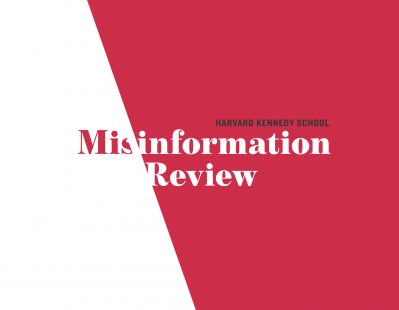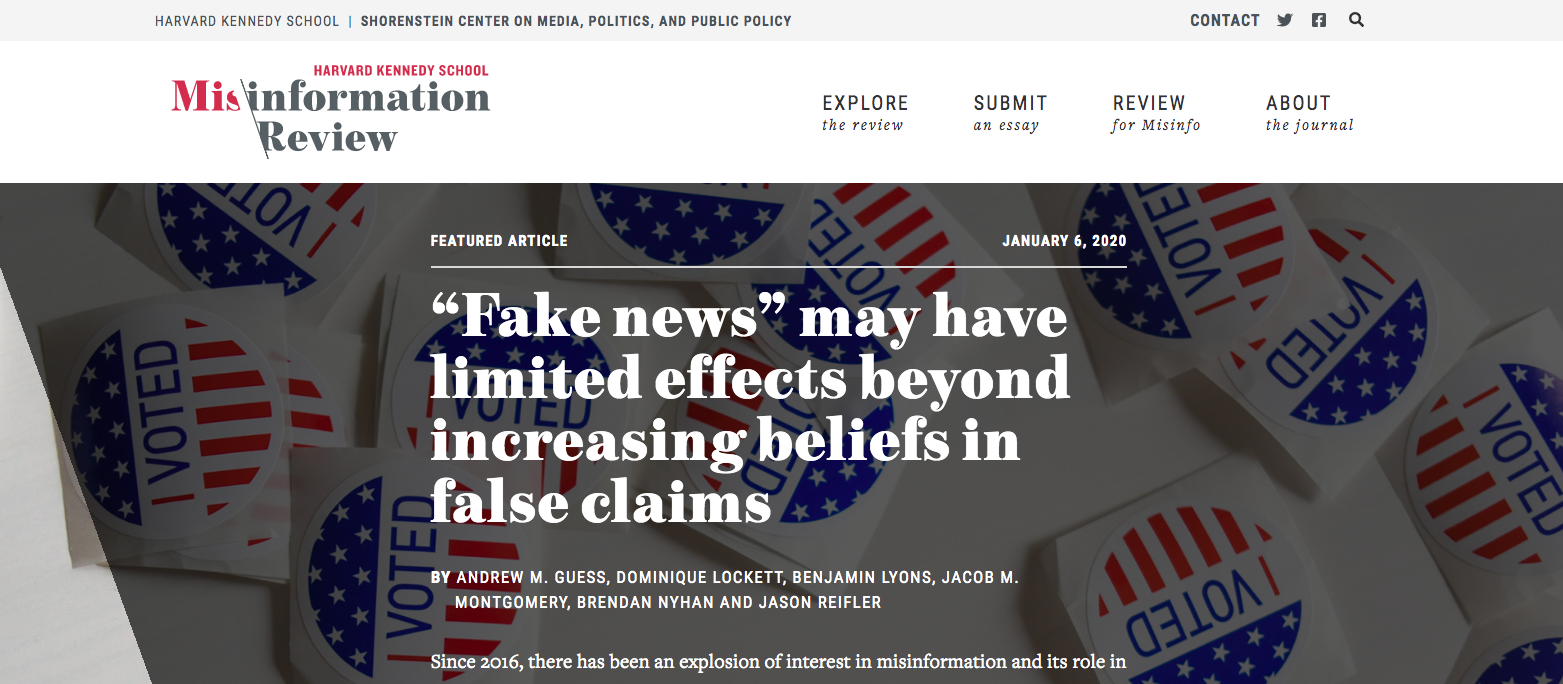The Shorenstein Center is proud to announce the launch of a new peer-reviewed journal, the Harvard Kennedy School Misinformation Review.
The HKS Misinformation Review is an open-source, interdisciplinary, scholarly journal focused on all aspects of misinformation and featuring methodologically diverse, peer-reviewed, empirical research and cutting-edge commentary. Articles and commentaries published by the HKS Misinformation Review are edited to be accessible to practitioners in journalism, public policy, and other fields affected by misinformation campaigns. The journal operates on an innovative “fast-review” model, which ensures that timely research is peer reviewed and published within one month of submission.
Nancy Gibbs, Director of the Shorenstein Center on Media, Politics and Public Policy, Visiting Edward R. Murrow Professor of Practice at Harvard Kennedy School, and the former Editor in Chief of TIME Magazine, says, “The HKS Misinformation Review fills a need in the academic, journalistic, and public policy communities for reliable new research on misinformation and its effects on our information landscape. Its innovative “fast review” model means that up-to-the-moment research will quickly get to those who need it most, through a process that ensures quality and academic rigor. The Shorenstein Center is proud to the journal’s home at Harvard University’s John F. Kennedy School of Government.”
Visit the HKS Misinformation Review at misinforeview.hks.harvard.edu. A full list of articles in the first issue are below.

The Harvard Kennedy School Misinformation Review
Volume 1, Issue 1
January 14, 2020
Editorial: Volume 1, Issue 1
By Irene Pasquetto and the HKS Misinformation Review team
Russian Twitter disinformation campaigns reach across the American political spectrum
By Deen Freelon and Tetyana Lokot
“Fake News” may have limited effects beyond increasing beliefs in false claims
By Andrew M. Guess, Dominique Lockett, Benjamin Lyons, Jacob M. Montgomery, Brendan Nyhan and Jason Reifler
Emphasizing publishers does not effectively reduce susceptibility to misinformation on social media
By Nicholas Dias, Gordon Pennycook and David G. Rand
Cross-platform disinformation campaigns: lessons learned and next steps
By Tom Wilson and Kate Starbird
How trust in experts and media use affect acceptance of common anti-vaccination claims
By Dominik Andrzej Stecula, Ozan Kuru and Kathleen Hall Jamieson
Commentary: Answering impossible questions: content governance in an age of disinformation
By John Bowers and Jonathan Zittrain
Commentary: Redesigning consent: big data, bigger risks
By Joan Donovan


